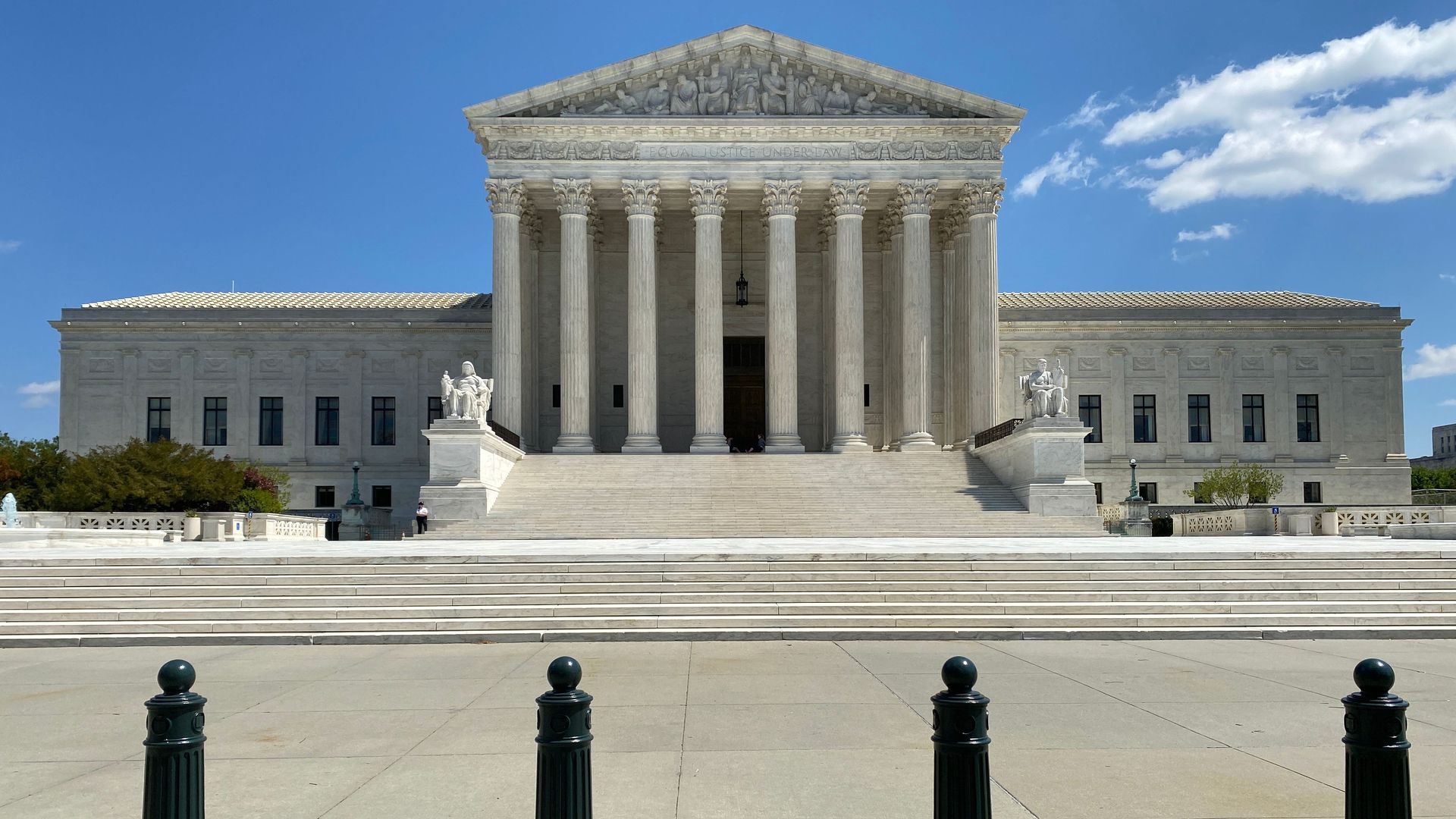Supreme Court rules against EPA on wastewater
Add Axios as your preferred source to
see more of our stories on Google.

Photo: Daniel Slim/AFP via Getty Images
The United States Supreme Court ruled 6-3 on Thursday that sewage plants and other industries must abide by environmental requirements under the Clean Water Act when sending dirty water on an indirect route to rivers and oceans, AP reports.
Why it matters: The ruling rejects the Environmental Protection Agency's opinion that industries do not have to comply with the regulations if they discharge polluted water into the ground.
- The EPA under President Trump reversed its position on ground discharge, which it had held for 30-years.
What they're saying: “We hold that the statute requires a permit when there is a direct discharge from a point source into navigable waters or when there is the functional equivalent of a direct discharge,” Justice Stephen Breyer wrote for the court.
The other side: Justices Samuel Alito, Neil Gorsuch, and Clarence Thomas dissented.
- “Based on the statutory text and structure, I would hold that a permit is required only when a point source discharges pollutants directly into navigable waters,” Thomas wrote.
The big picture: The decision came from Hawaii case about whether a sewage treatment plant needs a federal permit to send wastewater underground.
- Environmental studies have found that the wastewater eventually reaches the ocean and has damaged a coral reef near a Maui beach, according to AP.
Thought bubble, via Axios' Ben Geman: It’s the latest twist in roughly two decades or more of legal and regulatory battles over the reach of the Clean Water Act — a bedrock environmental law subsequent administrations have interpreted very differently in terms of the breadth of protection it provides.
Go deeper: Trump administration to weaken mercury emission regulations
